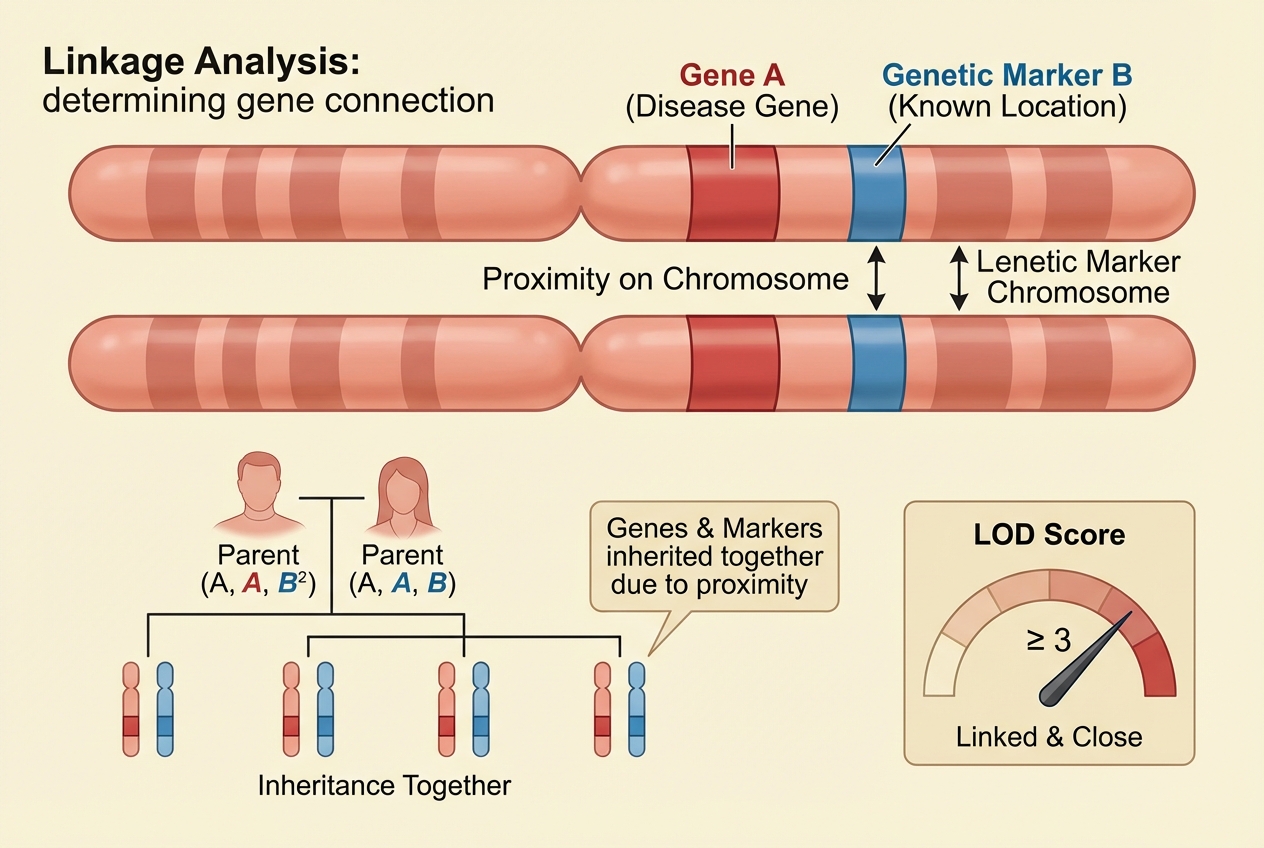
Linkage analysis is a scientific approach used to determine the connection between genes. It is commonly employed in gene discovery and genetic testing today. Linkage refers to the phenomenon where genes and other genetic markers are inherited together due to their proximity on the same chromosome.A gene is an essential hereditary unit that can be transferred from a parent to their offspring, and in humans, all genes are fragments of DNA. Most genes provide instructions for synthesizing specific proteins.The concept of a "genetic marker" is broader than that of a gene. A genetic marker is a DNA segment with a known location on a chromosome that allows its inheritance to be tracked. A genetic marker may function as a gene, or it might be a DNA segment without a known function.Since DNA segments close to each other on a chromosome are often inherited as a group, markers are frequently used to trace the inheritance pattern of an uncharacterized gene, whose general location is already known.The statistical measure used to determine the likelihood of two loci being near each other on a chromosome, and thus inherited together, is known as a LOD score. A LOD score of 3 or higher typically suggests that the two loci are linked and situated close to one another.




